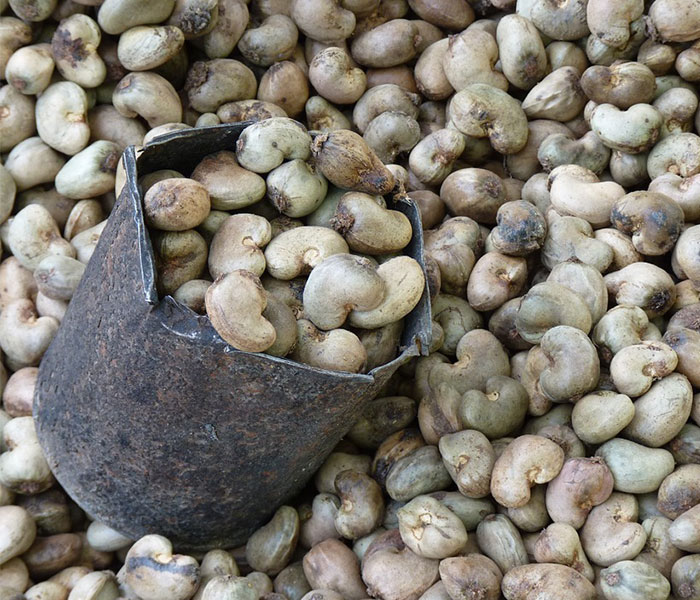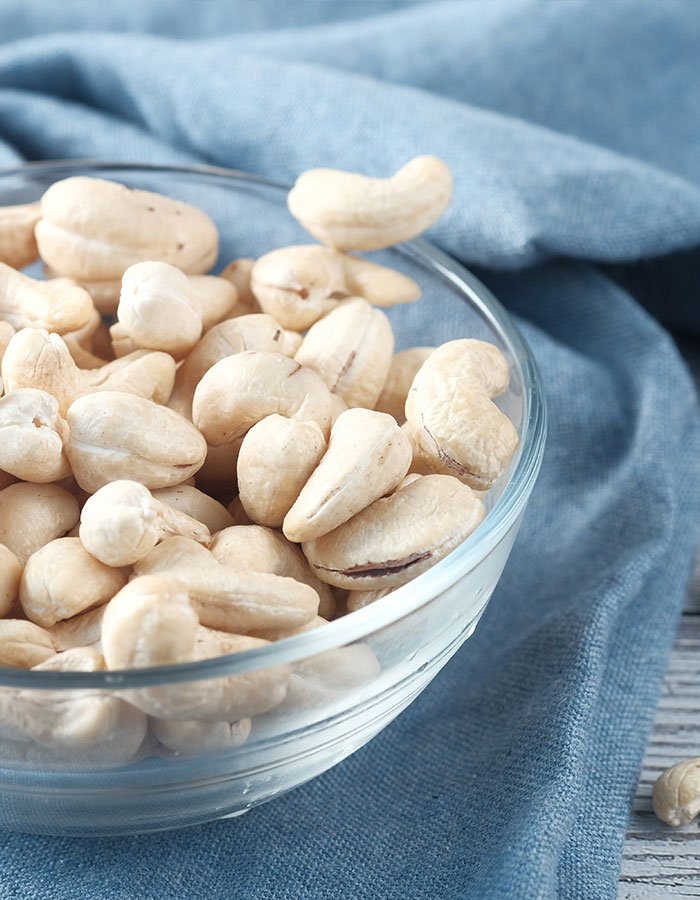


The term ‘cashew’ has originated from the Brazilian name ‘acajaiba’ and the Tupi name ‘acaju’, which the Portuguese converted into ‘caju’ and is commonly known as ‘kaju’ in India.
The species is native to North-eastern Brazil and South-eastern Venezuela, and later was distributed around the world in the 1500s by Portuguese explorers. Portuguese colonists in Brazil began exporting cashew nuts as early as the 1550s. The Portuguese took it to Goa, India between 1560 and 1565. From there, it spread throughout Southeast Asia and eventually to Africa.
India is the largest producer, processer, consumer and exporter of cashew in the world. The current Cashew nut production in India accounts for 45 per cent of the global production. India being the leader in the world in raw Cashew nut production and is also the largest supplier of cashew kernels to the major world markets.
Cashews have become popular throughout the world for their delicate flavour and extraordinary health benefits.
Cashew nuts also help improve your overall health. They’ve been linked to benefits like weight loss, improved blood sugar control, and a healthier heart.
According to ayurvedic studies, Agnikrita (अग्निकृत)/ Bhallataka has Ushna property, which is beneficial for removing Ama, which is the body’s toxic remains. Agnikrita (अग्निकृत) helps remove bad toxins from the body by clearing the bowels as it has rechana property.
